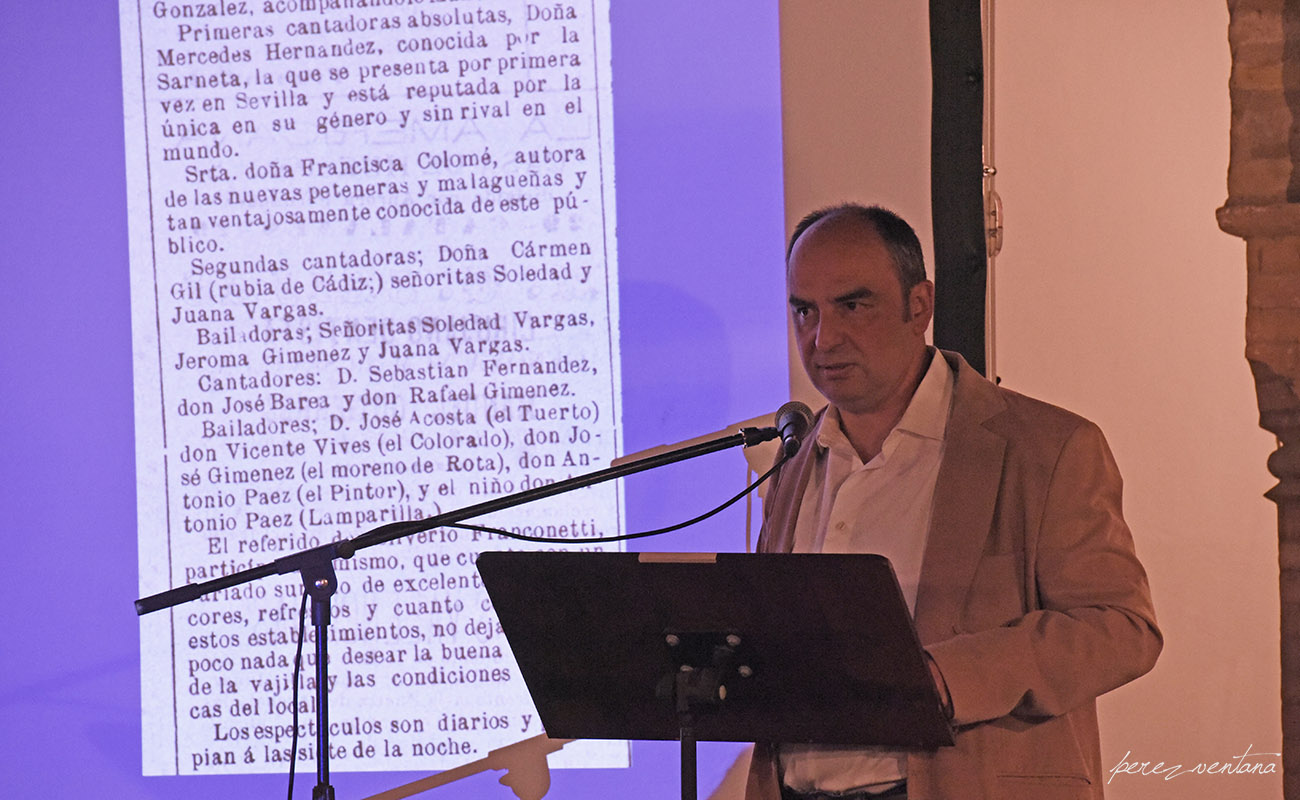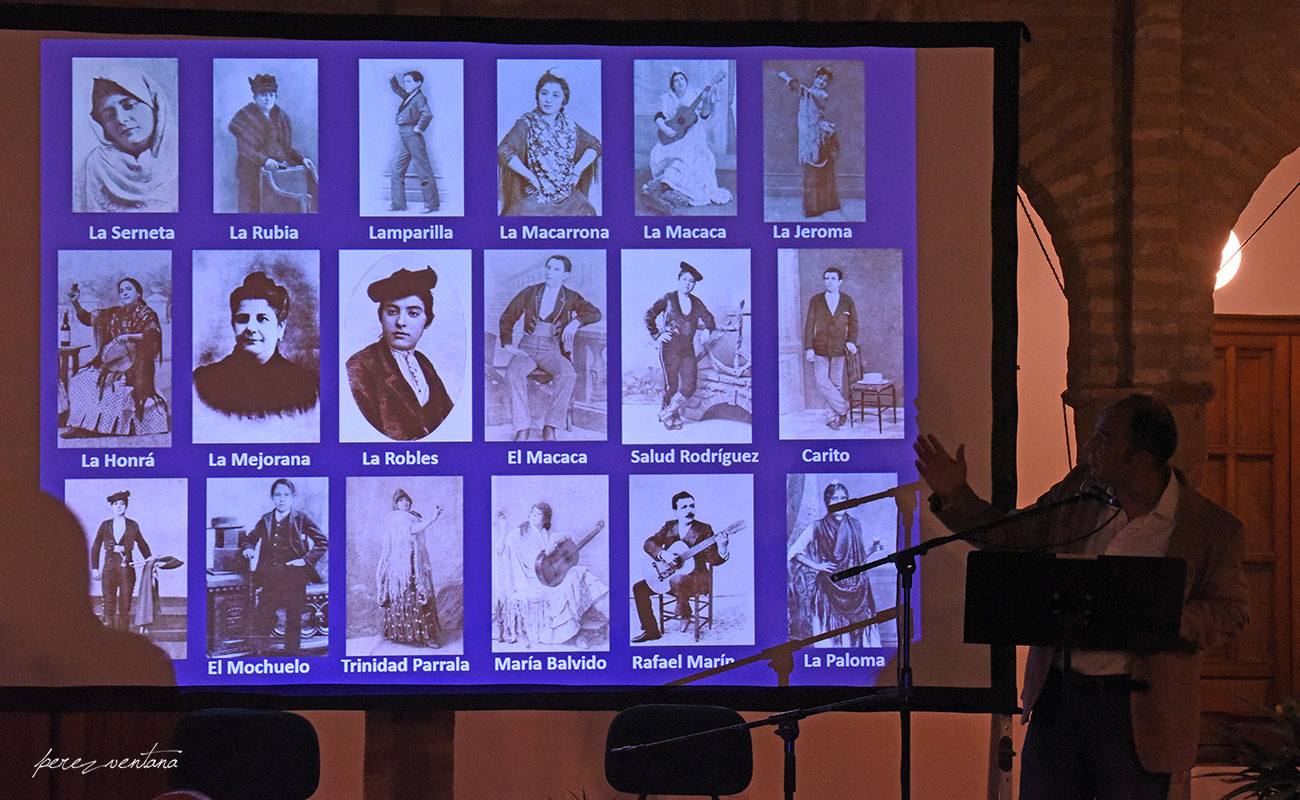Luis Vázquez and El Tenazas de Morón
If he were alive and read this book, he for sure would take his hat off, as he would discover, perplexed, how a young man from his town knows more about him than he himself.

I’ve known Luis Javier Vázquez Morilla for several years, and I’ve always admired the rigour of his research, his ability to work hard, and his love for everything that has to do with the history of flamenco, especially its true protagonists, the artists of flamenco cante, baile and toque. Luis is not just another researcher, even as this is his first book. He is someone special who knows the importance of corroborating data to be able to find the truth, and tell it. Flamenco has always had good researchers, but it’s only in the last few decades when research is being done with the necessary rigour. Demófilo, Fernando el de Triana, Rafael Pareja, Ricardo Molina and Antonio Mairena left us great works, but they weren’t very rigorous in their investigations. However, their treatises are still books of reference for many, often quoted without their data being corroborated. Researches such as José Blas Vega, José Luis Ortiz Nuevo, Geradr Steingrees, Eugenio Cobo and José Gelardo, among others, started another era, leaving us their works. Luis Vázquez, from Morón de la Frontera, deservedly joins these names with modesty and humility. He decided to write the history of flamenco in Morón de la Frontera, the town where Silverio Franconetti grew up, and where El Fillo (son) and his partner La Adonda lived. He has written a lot about them in some internet forums, but the best is yet to come. As a sample of the great material he possesses about the flamenco history in this town in the province of Seville, here is his first book, an excellent biography of Diego Bermúdez Cala.
Diego was the mythical Tenazas de Morón, winner of the Concurso de Cante Jondo de Granada in 1922, the contest promoted and organized by Manuel de Falla and Federico García Lorca, among other intellectuals and artists of that time, for (as Lorca put it) “rescuing the arte jondo from vanishing”. The amount of data that Luis Vázquez has compiled to make this book about El Tenazas (and also about the importance and repercussion of that historical contest in Granada) is truly impressive. Yet, while it’s important to gather data, the ability to analyze the valuable information is essential. All this fieldwork would be of no use unless it’s properly organized and put to paper, as it is done in this case, in a biography that will be useful for everyone wishing to learn more about this cantaor from Morón, who has been little-known until now, perhaps because he didn’t have an artistic career beyond the Granada contest. If he hadn’t taken part in a contest which gave fame to Niño Caracol, the cantaor from Morón would just be part of the extensive roll of anonymous cantaores. Luis has taken upon himself to complete a biography that is necessary to understand the times and the person, who didn’t even left any discography. Luis debuts with this biography giving a lesson of research and, above all, of love for the cante of his people, and love for his most famous cantaor, the unique Tenazas. If he were alive and read this book, he for sure would take his hat off, as he would discover, perplexed, how a young man from his town knows more about him than he himself. If El Tenazas was already important, due to his performance in Granada, now he is even more so. Luis Vázquez Morilla has managed to perpetuate his name and his memory, and also his legacy, modest as it is, with a rigour and professionalism that deserve the appreciation of all those among us who are dedicated to flamencology and to writing biographies about those who gave us so much, and yet have fallen into the most unfair oblivion.







